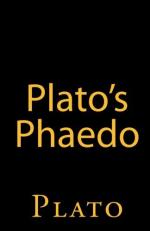
|
| Name: _________________________ | Period: ___________________ |
This test consists of 15 multiple choice questions and 5 short answer questions.
Multiple Choice Questions
1. What did the one recounting the event of Socrates' death feel for him?
(a) Shame.
(b) Envy.
(c) No pity.
(d) Nothing.
2. What does the soul reason best without according to Socrates?
(a) Senses.
(b) Help.
(c) The brain.
(d) Luck.
3. What does Socrates say about philosophers at the start of 62d -66a?
(a) They need to be more vocal about their needs.
(b) They life is too precious to waste.
(c) They should be ready and willing to die.
(d) They should not talk against Athens.
4. What does Cebes argue a man can always answer correctly?
(a) If given a hint.
(b) If rewarded for the good answers.
(c) If asked the right way.
(d) If asked slowly.
5. What question does Socrates ask Simmias in 62d-66a?
(a) If he believes in god.
(b) If he can counter his previous argument.
(c) If he can take care of his wife.
(d) If he believes in death.
6. What is clearer to the soul than the body according to Socrates?
(a) Women.
(b) Reality.
(c) Friendship.
(d) Fantasm.
7. What does Socrates argue cannot come from the present life in 73a-81a?
(a) Inequality.
(b) Our knowledge of equals.
(c) Our memories.
(d) Our loved ones.
8. According to the account of his death, how did Socrates lived his life?
(a) Without any fear of tomorrow.
(b) With the blessing of the gods.
(c) As dangerously as he could.
(d) With great respect for it.
9. What does Socrates believe something in existence will lead us away from in 66b-72e?
(a) Prison.
(b) Greed.
(c) Ignorance.
(d) Confusion of senses.
10. What does Simmias think of Cebes arguments about the man that answers correctly?
(a) He wants to claim them as his own.
(b) He is convinced.
(c) He want more time to think about them.
(d) He is not satisfied.
11. According to Socrates, what equal never is?
(a) Trees.
(b) Unequal.
(c) Small.
(d) Seen by threes.
12. Who was present for Socrates' death according to the men at the start of "Phaedo"?
(a) A good many of Socrates' friends.
(b) Only the judge and executor.
(c) A good many of Socrates' enemies.
(d) The Athenian senate.
13. What does Socrates argue philosophy would allow a man to face with a happy face?
(a) Death.
(b) Writing.
(c) Mathematics.
(d) War.
14. Who agrees with Cebes' views on death according to 62d?
(a) Socrates.
(b) Phaedo.
(c) Simmias.
(d) Echecrates.
15. In "Phaedo", what is the abstract fact about the world that makes it true that two sticks are of the same type?
(a) Equal.
(b) Almost the same.
(c) Identical.
(d) Similar.
Short Answer Questions
1. Who does the account tell was present during Socrates' trial beside his friends?
2. How did Socrates die according to the account of the event?
3. Why was Socrates held prior to dying, according to the two men discussing at the start of "Phaedo"?
4. How do things appear when perceived by the senses according to Socrates?
5. What can be achieved in death that could not be achieved in life according to Socrates?
|
This section contains 493 words (approx. 2 pages at 300 words per page) |

|




